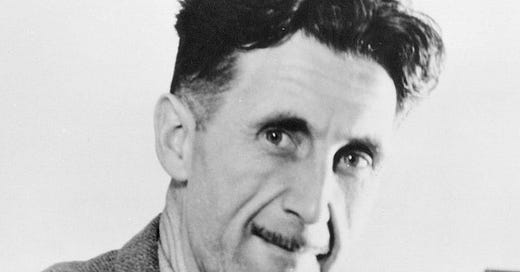George Orwell wrote a whole (short) book about pig politics. It was called Animal Farm. But it was an allegory.
Do animals in general have anything comparable to politics in humans?
Social species of animals certainly do. Wolf packs and lion prides have politics, in the sense of systems for making decisions for the group. They tend to be hierarchical, with the dominant male deciding for the group. In orca pods the dominant figure is a female.
Herd species make decisions by consensus. Individual bison turn to face the direction they think the herd ought to go. When enough are facing in the same direction, the herd moves that way.
Geese get restless as the time to migrate approaches. More and more get restless until the flock takes off. Direction isn’t an issue. They all know to head north in the spring and south in the autumn.
Roughly speaking, the lion prides are monarchies while the bison herds are democracies.
Is this too anthropomorphic?
Yes and no. Yes if one requires certifiable self-consciousness in individuals to call their collective behavior politics. Lions are clearly conscious. Are they self-conscious? Does a subordinate male ask himself what will happen if he challenges the dominant male? There’s no evidence that he does.
But no, it’s not too anthropomorphic if we ignore what’s happening inside individual heads and simply observe group action. In the wolf pack the alpha male makes decisions, perhaps in conjunction with his mate, and the pack follows. In the bison herd the group votes, so to speak, with the majority determining the direction of travel.
Nonhuman species lack the elaborate superstructures of politics humans have erected. They don't have constitutions and nominating conventions and electoral colleges. But all social species, including humans, face the same problem of finding the optimal balance between the interests of the individual and of the group.
In evolutionary terms, the individual matters because individuals are the transmitters of genes to the next generation. The group matters because the group provides the context that allows individuals to survive to transmit their genes.
Humans overlay cultural and moral codes upon their decision strategies — that is, upon their politics. Some cultures prioritize individuals while others emphasize groups. The differences reflect historical circumstances.
American culture, shaped when the population density of North America was low, has allowed greater scope for individuals in decision making. Chinese culture, shaped by millennia of dense population, has subordinated the individual to the group.
Americans, prizing freedom, have lamented China's failure to embrace liberal values. Chinese, attuned to the importance of social harmony, have puzzled at Americans’ tolerance for domestic violence and dysfunctional politics.
Moral judgments are means by which cultures enforce evolutionarily adaptive behaviors. Most cultures consider incest loathsome. By this means they reduce the chances that harmful recessive genes are expressed. Most cultures punish homicide within the group but allow or even celebrate the killing of enemies. Foods known to be at risk of harboring pathogens are often declared taboo.
Animals don't appear to impose values upon their politics. Old lions driven from the leadership of the pride haven't been recorded complaining of unfairness. Bison outvoted in the decision to move on don't demand a recount. Animal politics seems almost mechanical.
Humans being animals, this suggests that human politics might be mechanical too, beneath the moralizing. Democracy works where democracy works and not where it doesn't. A bill of rights is appropriate at some times and in some places but perhaps not at all times everywhere.
At the end of Animal Farm, the ruling pigs have come to so resemble the humans they overthrew that the rest of the animals can't tell the pigs and humans apart. Orwell's fable is a commentary on human politics, but maybe it’s about porcine politics as well.




I was recently reading this very interesting book entitled: “doctors by nature” how nonhuman animals act as their own doctors. And the term anthropomorphic came up and the author gave an interesting story of a man born in the USA who went to Japan to become an primatologist solely because the Japanese have an anthropomorphic view of animals. The author said in western Christian based societies anthropomorphic attitudes are frowned down on because of Christian dualism. Human vs. nature. While in Buddhist societies this dualism doesn’t exist.
Before i had to cut my education short due to illness and a surgery i was working toward becoming a primatologist.
One thing many do not realize, or perhaps forget, is that in chimp society the alpha is also expected to take the most risk. When there is a threat, that is who is at the forefront defending the troop. Position has costs for them.
It is not all that long ago, if one reads old history and lore, since humans also required their leaders to take extra risks to hold high positions.
Modern humans have turned that sense of order, justice, and obligation on its head. Those who most benefit also face the least risk, while those who deal with the worst risks also have reduced opportunities for betterment and self-sovereignty.